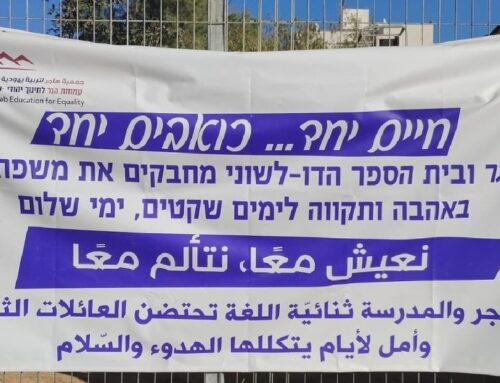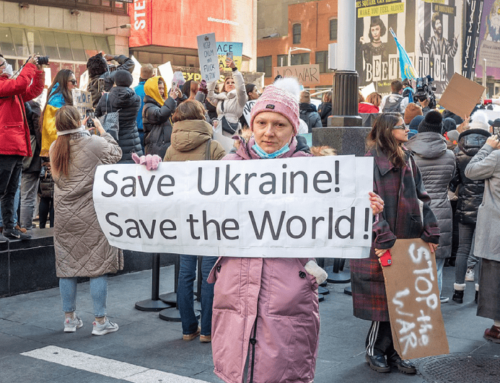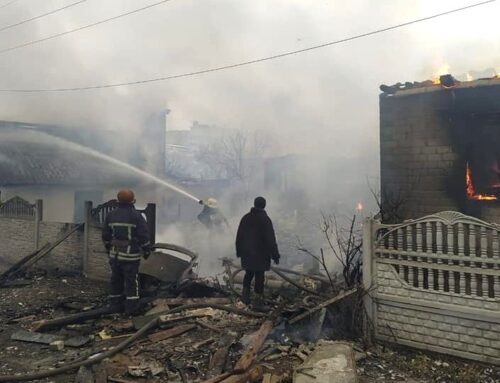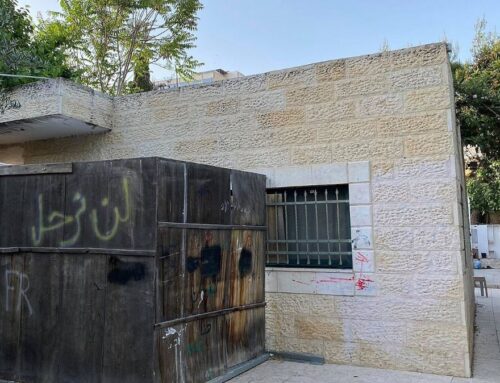Moving Forward
Rather than uncompromisingly opposing a Hamas-Fatah reconciliation, it is in Israel’s interest to support this if it is possible (something Egypt has been attempting to facilitate). Bringing Hamas “inside the tent” is greatly preferable to keeping it outside.
Obviously, if such a coalition were to embrace violence, Israel would have to react in kind. Far more likely, however, is that such a coalition would accept the three Quartet demands which Hamas refuses to accept on its own, for Islamist ideological reasons, and would, unlike Fatah alone, be able to represent the majority of Palestinians. These demands are to recognize Israel, renounce violence, and to accept all previous agreements with Israel as valid.
As an Islamist political party, Hamas cannot accept them. There is reason to believe, however, that it would join a government that does.
If and when a Fatah-Hamas coalition government is formed, Israel would have to modify the blockade it has clamped on the Gaza Strip. Other than as an initial response to attacks from Gaza, Israel’s ongoing reasons for the blockade appear to be:
• Freeing Gilad Shalit: Israel is loathe to free the large number of Palestinians with “blood on their hands” that Hamas demands in exchange. Still, as of this writing, a deal on Shalit seems imminent.
• Ending or seriously limiting weapons smuggling into Gaza from Egypt: This is the most important long-term issue for Israel and a potential deal-breaker. Hamas refuses as a matter of principle to limit its right to arms (contending that since Israel obtains arms, it should as well); additionally, Hamas argues that weapons smugglers are independent entrepreneurs over whom it has no control.
Egypt may succeed in eliminating or severely curtailing smuggling with a new type of fence it is reportedly building on its border with Gaza that would shut down all but the deepest tunnels. Israel is unlikely to agree to any further deal involving Hamas without a satisfactory resolution of this arms smuggling issue.
The United States, in solidarity with Israel, has made complete opposition to Hamas a fundamental principle of its Mideast policy. It cannot abandon this policy completely, nor should it. What the US can do is to make clear that Hamas cannot be destroyed in the foreseeable future and to attempt a joint policy with Israel based on that recognition.
The US should also examine the effect of the current blockade and siege of Gaza on Hamas’s policies, balanced against the prospect of Hamas complying with the Quartet’s three demands, the likelihood of the blockade holding up indefinitely, and its effect on world public opinion. Then Israel and the US can proceed to negotiate, perhaps through third parties, a building down of the current blockade in return for limitations on smuggling and an ongoing cease-fire. It is in the interest of the US to support Egyptian efforts to reconcile Hamas and Fatah so there can be a Palestinian interlocutor that truly represents the Palestinian population.
The US should take a consultative role in this process, as a supporter of Fatah. Hamas would be under pressure to further modify its traditional stance of refusing to recognize previous agreements, including Oslo, which it has already compromised by participating in elections held under the Oslo framework. Incentives would be offered for positive movement and sanctions imposed for negative actions.
If a coalition government is successfully formed, the US should carefully calibrate its dealings with it, depending on what Hamas has agreed to, and how it implements its promises. For example, the US would presumably refuse to meet with Hamas representatives in the government so long as Hamas does not recognize Israel.
In the larger Muslim world, this should be part of a winnowing process by which the US and its allies, including Israel, would begin actively to differentiate among Islamist organizations to determine which it can work with. This would constitute recognition that the most energetic and popular movements in the Muslim world and the Middle East today come almost completely from political/social movements, largely Islamist, rather than from state actors.
As noted, since the virtually universal Islamist view is that Israel is an illegitimate occupier of Muslim land, its formal recognition by Islamist organizations is currently unthinkable. This may change eventually, but is unlikely to in the near future. It is highly unlikely that Hamas will transgress this basic stricture though, as previously indicated, it may work with other groups that do, or try to finesse actual “recognition.”
This is not a pleasant fact for Israel. It has envisioned, since its founding, its eventual acceptance by the countries of the region and has achieved it, to a degree, with Egypt and Jordan. Israel, however, even with the support of the US, is not in a position to destroy the power of Islamism in the Middle East today or to dictate its ideology.
Thus, a means of coexistence may have to be developed that recognizes realities but does not surrender to them. For instance, as a quid pro quo for relaxing or eliminating its control of Palestinian borders, Israel might demand a degree of effective international control of those borders in the absence of fully normalized, bilateral relations.
This is coexistence, not peace. It is not the usual, or preferred, mode of relations between nations.
Since its founding in 1987, Hamas–through its organizational coherence, political shrewdness, ideological consistency, strategic use of violence, and a generous helping of mistakes by its adversaries–has made itself an indispensable part of the Israeli-Palestinian conflict. “Indispensable” is defined here as a party without which peaceful coexistence cannot be achieved. Israel needs to come to grips with this difficult reality.






Leave A Comment